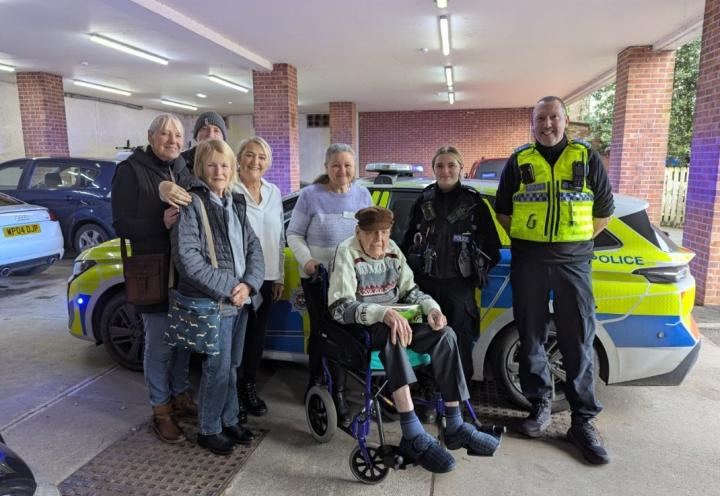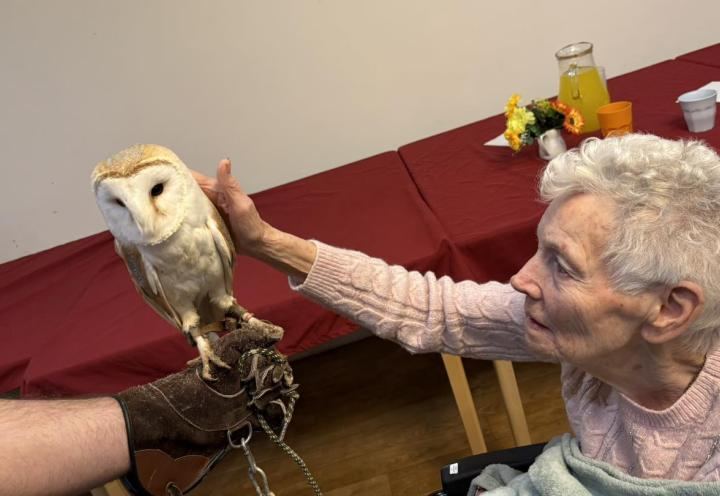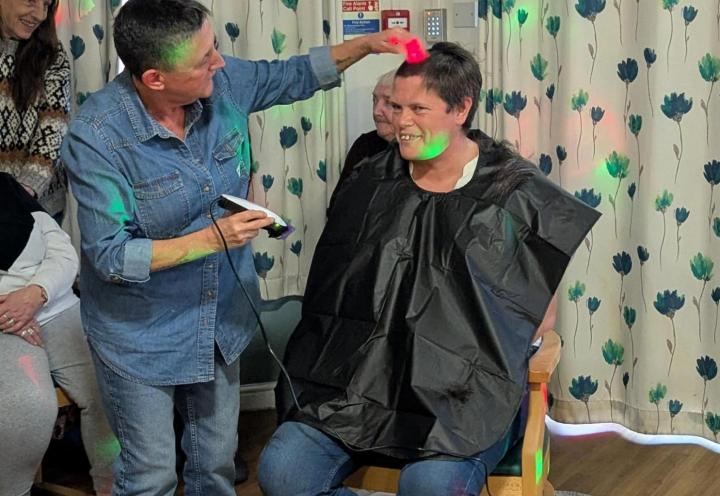Getting ahead of the learning curve
We’re on a mission to transform dementia care in the UK. It’s not acceptable for those living with dementia to receive inequitable care. Historically, there’s been a reluctance from care providers to welcome people with psychological distress responses, termed by many as ‘challenging behaviour’.
Our Dementia Promise ensures that support is tailored to the individual, giving people a voice and the ability to live a fulfilled life. We’re moving away from traditional care home approaches, which are often risk-averse and can reduce cognitive function further.
We're currently rolling out 3 levels of dementia training to all staff across our 23 homes – an initiative we believe is the most comprehensive face-to-face training programme out there. Our innovative, evidence-based course content is designed to completely re-frame how we think about people living with dementia.
The training model puts people at the very heart of their own care. By truly understanding the individual’s interests, personality and abilities, we can deliver more bespoke, more effective care plans, which have already resulted in significant reductions in distress-response incidents and in the use of psychotropic medication across the group.
Here are some ways that care providers help drive vital change across the sector:
- Awareness - remember that sensory changes are commonly experienced by those with dementia. Sensitivity to touch, sound, bright lights or colours can trigger distress-response behaviour, so think about dialling down overpowering sensory stimulation.
- Risk - To achieve truly equitable care for people living with dementia, we need to focus on ‘positive’ risk rather than using blanket risk mitigation. We must look at adapting all environments to support this, or create smaller, dedicated dementia care settings, such as our Reconnect Communities, which cater to smaller groups with a higher staff ratio.
- Language - Using positive vocabulary, rather than ‘care speak’ is essential to change. For example, using terms like ‘challenging or difficult’ in relation to behaviours is extremely negative, and is often a misrepresentation of the person. We accept that people with dementia may have certain responses, however, this can be caused by confusion or the way their care is given. Try to understand what is causing the distress – remain calm, maintain eye contact and give simple instructions to help de-escalate situations.
- Meaningful Occupation - In our training, we ask staff to reflect on how they occupy themselves for fun or to stimulate their brains. This helps to reframe the traditional model of care home activities, which doesn’t reflect normal life. Understanding a person’s likes and dislikes and engaging with them on a personal level helps them to feel valued, understood and ‘normal’. In our Reconnect Communities, we’ve added a laundry and workshop, small kitchens to make a snack and garden areas for planting which people can choose to use as they want. We have seen vast improvements in confidence and independence by offering meaningful activities and a ‘home from home’ environment which employs positive risk elements.
- De-escalation - Explore the potential causes of distress – often just put down to a side effect of dementia and can lead to prescribing unnecessary psychotropic medication. Through group role play, we reflect on how we as carers are often inadvertently the source of the distress – perhaps rushing a task, speaking too loudly, or lacking preparation.
It may seem like a big undertaking to challenge and change dementia care practices across the UK, but we believe that getting the basics right and spreading awareness of what is possible, is one step closer to a positive outcome for all.
Hannah Miller - Head of Dementia




